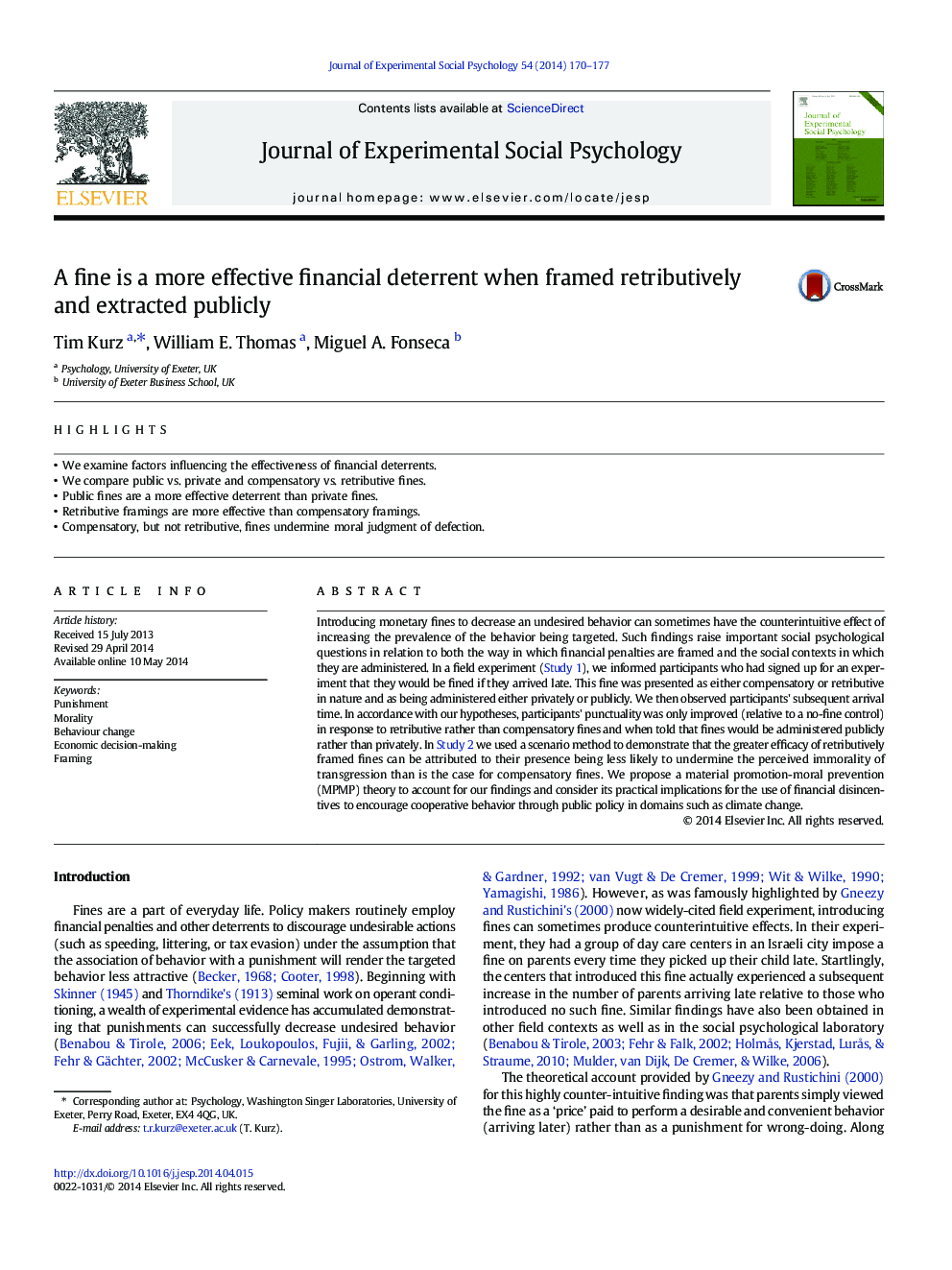| کد مقاله | کد نشریه | سال انتشار | مقاله انگلیسی | نسخه تمام متن |
|---|---|---|---|---|
| 947812 | 1475869 | 2014 | 8 صفحه PDF | دانلود رایگان |
• We examine factors influencing the effectiveness of financial deterrents.
• We compare public vs. private and compensatory vs. retributive fines.
• Public fines are a more effective deterrent than private fines.
• Retributive framings are more effective than compensatory framings.
• Compensatory, but not retributive, fines undermine moral judgment of defection.
Introducing monetary fines to decrease an undesired behavior can sometimes have the counterintuitive effect of increasing the prevalence of the behavior being targeted. Such findings raise important social psychological questions in relation to both the way in which financial penalties are framed and the social contexts in which they are administered. In a field experiment (Study 1), we informed participants who had signed up for an experiment that they would be fined if they arrived late. This fine was presented as either compensatory or retributive in nature and as being administered either privately or publicly. We then observed participants' subsequent arrival time. In accordance with our hypotheses, participants' punctuality was only improved (relative to a no-fine control) in response to retributive rather than compensatory fines and when told that fines would be administered publicly rather than privately. In Study 2 we used a scenario method to demonstrate that the greater efficacy of retributively framed fines can be attributed to their presence being less likely to undermine the perceived immorality of transgression than is the case for compensatory fines. We propose a material promotion-moral prevention (MPMP) theory to account for our findings and consider its practical implications for the use of financial disincentives to encourage cooperative behavior through public policy in domains such as climate change.
Journal: Journal of Experimental Social Psychology - Volume 54, September 2014, Pages 170–177
